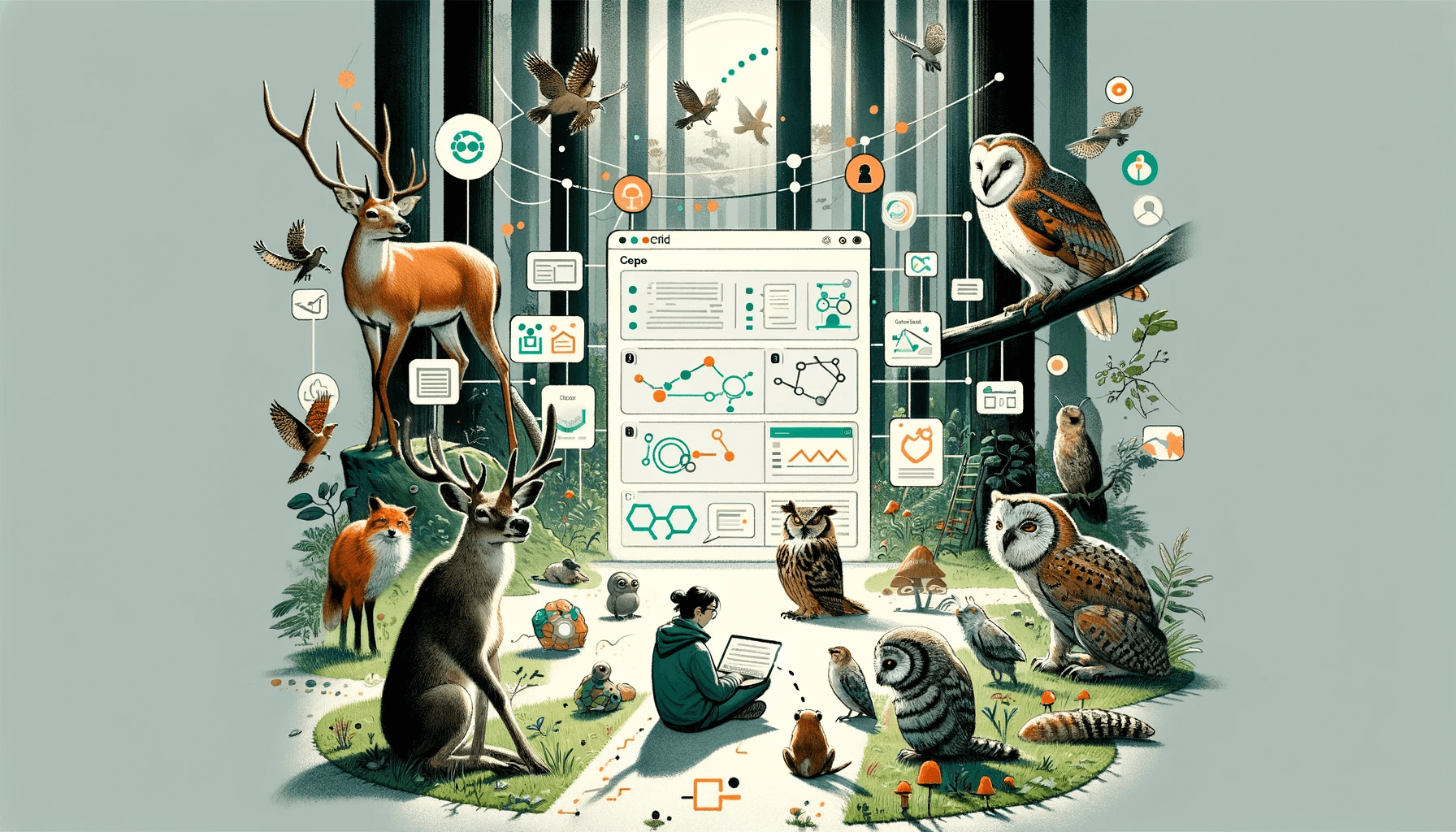Open Science Features #
The following are some of the features we would like to include in the development of Open Science, a bonfire extension to empower universities, collectives and researchers with tools to build federated research networks.
ORCID credential login #
This milestone involves developing an authentication and authorization system that allows users to log in to the Bonfire platform using their ORCID credentials. It includes setting up secure connections with ORCID's APIs, retrieving user details, and managing user sessions. The objective is to make the login process seamless and to provide an integrated experience for scientists, as their professional information and social presence will be tied to their ORCID identifiers.
ORCID publication import #
This feature will enable users to import their publication history from ORCID. It involves creating scripts to extract publication details from ORCID, convert and display this data into a format compatible with the Bonfire platform. This way, scientists can showcase their research outputs in their profile pages.
DOI metadata import for sharing existing research articles #
For this feature, the platform will need to be able to fetch metadata from a DOI (Digital Object Identifier). This process involves using APIs to gather bibliographic details, such as the title, authors, abstract, publication date, and publisher. Once imported, this metadata can be used to create a new post or update an existing one, making it easy for researchers to share and discuss existing research articles.
Pre-print sharing system (including PDF viewer, DOI generation via Crossref's REST API, versioning) #
This involves building a subsystem where users can upload their pre-print papers in PDF format. The system will use Crossref's or DataCite's REST API to generate a new DOI for each pre-print. It will also include a built-in PDF viewer to read the paper directly on the platform. Additionally, the system will allow different versions of the pre-print paper to be uploaded and managed, facilitating the process of incorporating updates and corrections.
Topic groups that could act as journals. #
This feature will enable users to create and join groups focused on specific topics, akin to individual scientific journals. Each group will have its own feed where members can post, comment, and interact. This feature will include group management options, such as invitations, membership approval processes, and content moderation.
Editor roles specific to the different groups. #
This involves creating a system of user permissions and roles within each group. The "editor" role will be introduced to manage the content within a group, approve posts, and facilitate discussions. Editors will have the power to moderate, edit, and delete posts within their group, thereby maintaining the quality and relevance of the group's content.
Badging system for posts in order to organize a peer-review process. #
A badging system will be implemented to tag and classify posts based on their content and status in the review process. Badges can be assigned to posts by editors or by a trusted group of scientists to signify stages of peer review, content types, or other noteworthy attributes. This feature will be crucial in organizing the peer-review process and guiding users through the flow of content.
Stretch goals #
Backlinks #
Backlinks will allow posts to reference other posts, fostering an interrelated network of content. This will involve creating a system to easily generate links within the platform, and also to track and display where backlinks are used, creating a network of connected information and facilitating citation.
Taxonomy #
The taxonomy feature will provide a structured way to categorize and tag content on the platform. This involves creating a hierarchical system of categories and subcategories that users can assign to their posts. This will facilitate content discovery and navigation, making it easy for users to find relevant content based on their interests.
Resources and Collections #
This will involve creating a system where users can group related posts into collections and designate specific posts or documents as resources. This will facilitate the organization of content, making it easier for users to curate and manage relevant information.
Audio posting for podcasts and oral documentation #
This involves integrating an audio posting system into the platform. Users will be able to upload audio files, like podcasts or oral documentation, with an accompanying thumbnail. Other users can play these directly in the platform, expanding the types of media that can be shared and discussed within the scientific community on Bonfire.
Open Science Network
This app is part of the Bonfire ecosystem and bundles the following extensions:
- Bonfire.Common - common utils
- Bonfire.Me - accounts, user profiles...
- Bonfire.Social - feeds, activities, posts, boosting, flagging, etc...
- Bonfire.UI.Social - interface for basic social activities
- Bonfire.Boundaries - define circles and associated privacy or permissions
- Bonfire.Federate.ActivityPub - federates activities with ActivityPub to participate in the fediverse
- Bonfire.Tag - @ mentions, hashtags, and tagging using topics/categories from Bonfire.Classify
- Bonfire.Classify - categories & classifications in taxonomies
- Bonfire.Geolocate - places
- Etc...
More information
See the main docs.
